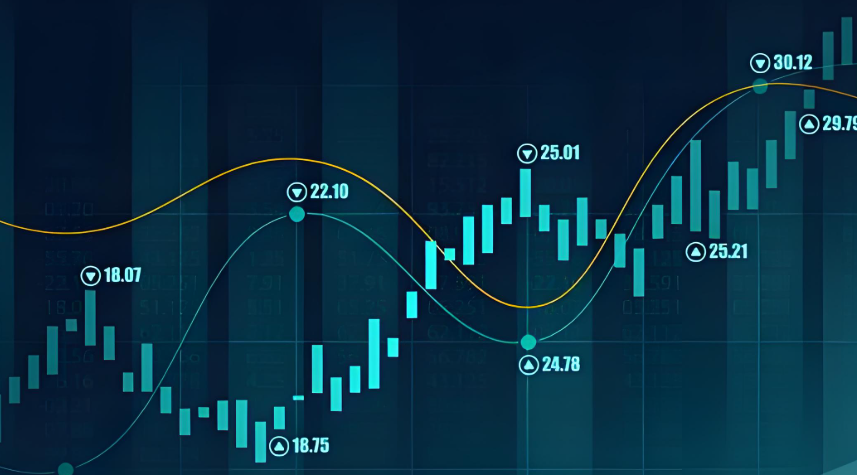The Economy Amidst Korea's Martial Law Crisis
Advertisements
The recent political upheaval in South Korea, which has endured for over a month, has escalated into a significant crisis that has destabilized a nation already feeling the strain of economic vulnerability. As protests and political tensions have surged, the implications for South Korea’s economy, society, and international relations have been profound and multifaceted. The repercussions of this turmoil have not only exacerbated existing economic stresses but have also cast a long shadow over the country's future prospects in a region where political stability is paramount for investment and growth.
One of the foremost challenges arising from this crisis is the sharp decline in the exchange rate of the South Korean won against the US dollar. As the won depreciates, South Korea, a nation heavily reliant on imports for raw materials and energy, finds itself grappling with escalating costs that threaten to undermine the profitability of businesses and lead to increased burdens in dollar-denominated debt. The situation has aggravated an already frail economy, creating a ripple effect across the entire industrial chain. For enterprises, rising material costs translate to tighter margins, and for consumers, higher import prices compound the financial strain on lower-income households, stifling consumption in a marketplace that was already struggling to gain traction.
The political unrest has further complicated the landscape for international investment. Given South Korea’s stature as a critical economy in Asia, the ongoing disruptions have forced global investors to reassess the risk associated with entering or staying in the South Korean market. Many decision-makers have opted to withdraw investments amid fears of potential losses, resulting in capital flight that destabilizes the stock and currency markets. Compounding these issues are significant cuts to the government budget, particularly affecting strategic sectors such as semiconductors and artificial intelligence, which are vital to South Korea's competitiveness in the global economy. These budget reductions threaten to undermine development in critical technologies, crucial for sustaining export growth and securing the nation’s economic future.

On the social front, the protests and unrest have intensified existing fractures within South Korean society, contributing to a climate of distrust towards the government. As demonstrations persist, the populace's faith in their leaders has plummeted, creating a breeding ground for further social unrest. This instability is detrimental not only to economic recovery efforts but also poses the risk of exacerbating social divisions. Moreover, South Korea's diplomatic relations have also been put to the test; the nation now faces challenges in maintaining its international standing and partnerships, as its image has undoubtedly suffered amidst the current disturbances.
In the face of these formidable challenges, it is incumbent upon the South Korean government to take decisive actions to stabilize both the economy and the social fabric. Effective currency management will be vital in navigating these turbulent times. Policymakers must implement monetary strategies aimed at curbing exchange rate fluctuations, thereby alleviating the pressures of rising input costs and debt burdens faced by companies. It is essential that the government also increases its support for vital industries such as semiconductors and artificial intelligence through robust investment and policy initiatives designed to foster growth and enhance export competitiveness.
Furthermore, proactive engagement with the international community will be crucial in ensuring that South Korea maintains favorable diplomatic relations that can facilitate economic recovery. This involves not merely maintaining existing partnerships but actively seeking new avenues for collaboration and support that can strengthen South Korea's position on the global stage.
However, a long-term perspective suggests that South Korea must also focus on foundational economic restructuring to achieve sustainable recovery and growth. This requires an accelerated transition from traditional manufacturing to advanced and smart manufacturing, as well as a shift toward knowledge-intensive service sectors. For instance, increased investment in emerging technologies such as renewable energy, AI, and advanced semiconductor research is crucial. Encouraging innovative practices within businesses will help cultivate new avenues for economic growth, establishing a more resilient economy capable of withstanding future shocks.
Moreover, the government must strengthen its social safety net, particularly for low-income groups. By improving basic pensions and expanding job support measures, the administration can help elevate living standards, thereby increasing residents’ disposable income. This, in turn, will enhance consumption — a critical engine for economic expansion. In the wake of the current turmoil, rekindling consumer confidence is essential; a revitalization of domestic spending will inject vitality back into the economy, paving the way for recovery.
Collectively, these multifaceted strategies will be vital for South Korea to navigate the challenges posed by the ongoing political crisis. The ramifications of this situation are akin to a storm, with far-reaching impacts on the business landscape. Limited commercial activity during the unrest has led to deteriorating investment conditions, with many companies facing the risk of insolvency and an alarming rise in unemployment. Despite these bleak circumstances, it is heartening to observe that both the government and various sectors of society refuse to succumb to despair. Numerous supportive measures have been mobilized, from financial stimuli to tax incentives, all aimed at revitalizing enterprises and inspiring innovation in the market.
While the path ahead is undoubtedly fraught with challenges, a decisive and collaborative response will empower South Korea to emerge stronger. With corrections in policy, a commitment to international cooperation, an inflow of external resources, and a focus on innovation, South Korea has the potential to rise from the ashes of this crisis. As the nation stands on the precipice of change, it is crucial that all stakeholders remain engaged in fostering a dynamic environment that can rejuvenate the economy and restore stability, ultimately leading to a future defined by growth and prosperity.
Post Comment